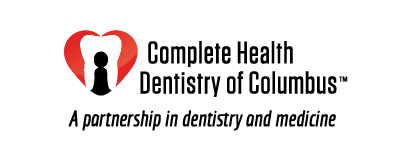Heart Talk - November 2020
- Eric Goulder, MD, FACC
- Nov 1, 2020
- 4 min read
Eat Smart Tips: Optimize Your Heart and Brain Health
Heart-healthy and Stroke-free Living with Eric A. Goulder, MD, FACC

The American Heart Association has designated November as Eat Smart Month, to inspire and motivate Americans to adopt a healthier lifestyle for the holiday season and beyond. Using the slogan, “Let’s nourish our hearts and minds together,” the AHA’s Healthy for Good initiative encourages all of us to “make healthy, delicious choices every time you eat.”
What are the best ways to optimize your diet? Here’s a look at seven science-backed nutritional strategies to support and enhance the wellness of the more than 60,000 blood vessels in your body — plus BaleDoneen recommendations for the best overall eating
plan to help reduce your heart attack and stroke risk.
FILL HALF YOUR PLATE WITH FRUITS AND VEGETABLES
Consuming more of these nutritional powerhouses could add years to your life! Two Harvard studies of nearly 110,000 men and women found that people who ate eight or more servings of fruits and veggies daily were 30 percent less likely to suffer a heart attack or stroke than those who ate less than 1.5 servings. Another recent study of nearly 400,000 men and women found those whose diet was highest in fiber (found in most fruits and vegetables) had a nearly 60 percent risk of dying from cardiovascular disease, infectious disease, or respiratory disorders. One easy way to get a full spectrum of health benefits
is to “eat the rainbow,” by including a variety of colorful fruits and veggies in your daily diet.
GO RED FOR YOUR HEART AND ARTERIAL HEALTH
Lycopene is the pigment that gives some fruits, such as tomatoes, their ruby hue. Several studies suggest that tomatoes, which are also high in disease- fighting antioxidants, vitamins A and C, folic acid, and beta carotene, have surprisingly powerful benefits for vascular health, including reducing levels of oxidized LDL cholesterol (the kind that can form plaque in the coronary arteries) in both healthy people and those with type 2 diabetes. Eating tomatoes or tomato products is also linked to reductions in blood pressure and inflammation. A large study linked high consumption of lycopene from tomatoes with a 65 percent decrease in stroke risk.
DITCH SWEET DRINKS
Consuming just one or two sugar- sweetened beverages daily – such as energy drinks, fruit drinks, soda, or
coffee drinks – raises risk for a heart attack or dying from CVD by 35 percent, diabetes risk by 26 percent, and stroke risk by 16 percent, according to a 2015 Harvard study. Sweet drinks have been called “liquid candy” and rank as the top source of added sugar in the U.S. diet. Instead, quench your thirst with
one of our refreshing fruit and herb infused water recipes, or squeeze a spritz of lemon or lime into plain or sparkling water. In a six-year study of more than 20,000 people, those who drank five or more glasses of H2O daily had half the risk of developing fatal heart disease than those who swigged two or fewer glasses a day, even when other risk factors were taken into account.
NIBBLE ON DARK CHOCOLATE
Amazing, but true: Eating dark chocolate could save your life! A study of more than 19,000 people, published in European Heart Journal, found that those who ate an average of 7.5 grams of chocolate daily (one small square) had lower blood pressure and were 39 percent less likely to suffer a heart attack or stroke than those who averaged 1.7 grams or less daily. An even bigger study found eating small amounts of chocolate trimmed diabetes risk by 31 percent. Based on these and other recent studies, we actually “prescribe” 7.5 grams of chocolate daily to our patients to enhance heart and arterial health.
SPICE IT UP!
Herbs and spices have been used as food and medicine for thousands of years. Modern science has shown that some of these tasty flavorings really do have remarkable health benefits, particularly for boosting cardiovascular (CV) wellness. Two very large studies recently linked a spicy diet to longer life and lower risk of death from heart-related causes. As we recently reported, seasonings with proven cardiovascular perks include cinnamon, which reduces cholesterol and blood sugar; turmeric, which fights inflammation, gum disease and depression; and hot chili peppers, which have been linked to longer life and lower risk for heart attacks and strokes.
FOR A FLATTER BELLY AND HEALTHIER HEART, TRIM 300 CALORIES A DAY FROM YOUR DIET.
A recent study found that people who cut 300 calories a day from their diet — the equivalent of two chocolate chip cookies or a slice of pizza — not only lost an average of 16 pounds over a two-year period but also had significant improvements in their cholesterol, blood pressure, blood sugar and other markers of heart and metabolic health. What’s more, study participants who practiced calorie restriction also lowered their levels of an inflammatory marker that has been linked to increased risk for cardiovascular
disease, cognitive decline and cancer.
NOSH ON NUTS (IN MODERATION).
People who eat nuts regularly have a lower risk for developing heart disease or experiencing cardiovascular events, such as heart attacks and strokes, compared to those who rarely or never eat nuts, according to a study of more than 210,000 men and women. Although the tasty treats are high in calories, they can also help people avoid long-term weight gain or obesity, other research shows. Eating almonds or hazelnuts may raise HDL “good” cholesterol, while pistachios help lower triglycerides. The BaleDoneen Method recommends eating a palmful of nuts daily, preferably tree nuts with skins, such as almonds, walnuts, hazelnuts and pistachios.
Read the Full Newsletter!

Comentarios